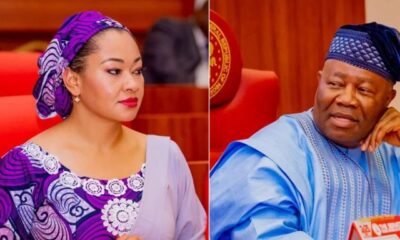Oil marketers are now changing some of their trucks to start distributing gas to filling stations in order to dispense compressed natural gas to automobiles that run on gas.
It was gathered on Thursday that roughly 800 tankers, which had previously been used to transport gasoline to gas stations, were being modified by marketers to begin transporting gas to retail establishments.
The marketers also disclosed that certain filling stations that supplied Premium Motor Spirit, more commonly known as gasoline, were now colocating CNG dispensing pumps.
They stated that the move gained momentum after the halt in PMS subsidy by the Federal Government, following the announcement by President Bola Tinubu, on May 29, 2023, that ‘subsidy is gone’.
The Federal Government had been pushing for the use of CNG by motorists, as against the widespread consumption of PMS. Gas, according to operators, was not only cheaper than subsidised petrol but was cleaner and very abundant in Nigeria.
The National President, Independent Petroleum Marketers Association of Nigeria, Chinedu Okonkwo, said, “Some of my members have started signing up to dispense gas at their stations, as well as the collocation of gas in their outlets. One of the major independent marketers has given over 500 of his trailers for conversion to transport gas to filling stations.”
He, however, pleaded not to name the owners of the stations, explaining that the dealers would not want to have their names in print at the moment, in order not to expose their businesses.
Explaining further, he said, “There are some new tankers too, over 300 of them have also indicated interest to have CNG (Compressed Natural Gas) trucks. These trucks are to serve filling stations that would be dispensing gas to vehicles.
“What we will do is collocate the gas dispensing plants in a plug-and-play model with existing filling stations. That is the beauty of it and that is why IPMAN is very keen on this project because there is no Local Government or ward in Nigeria today that you won’t see my members.
“We control over 80 percent of the downstream oil sector. So it is an advantage for us. For if you are to build new gas or CNG stations, it will take a huge cost. But this collocation model has helped to reduce the exposure in terms of building new stations.”
The push for the conversion to gas usage in vehicles further gained traction on Wednesday when the Depot and Petroleum Products Marketers Association of Nigeria met with Tinubu at the State House and promised to provide 100 units of CNG/diesel-powered, 50-seater buses to ease mobility among the most vulnerable citizens.
The Managing Director, North-West Petroleum & Gas Company Limited, Winifred Akpani, who spoke for the group, had revealed at the meeting that the new locally-manufactured buses would cost N100m each and would run on gas.
Meanwhile, the IPMAN president also told our correspondent that marketers were being asked to pay additional amounts for petrol that was not supplied to them before subsidy on the commodity was removed.
He said the Nigerian National Petroleum Company Limited, the sole importer of the commodity, had asked oil marketers to make the payment, adding that the extra cost was between N13m and N14m.
According to him, “The other thing that is of concern to my members is that some of them paid for products over three months ago and have not loaded these products. And when the NNPC changed the cost of PMS recently, it is asking them to bring extra N14m or N13m; that is a problem.
“They (marketers) are saying that the NNPC should provide the products that were paid for before the price was increased. That is the challenge I have now. Some of these marketers were on the verge of loading before the price was increased.”
“But NNPC said everybody has to pay the new price because the product has not entered the trucks of those who paid the old rate. I have pleaded with the Vice President of NNPC to see what the company can do.”
The Group Chief Executive Officer, NNPCL, Mele Kyari, reacted to this during a recent television interview, where he stated that “the immediate adjustment is typical anytime there is a price adjustment, even for other commodities in the market.
“For instance, if you buy tomatoes today and the price changes, a businessman will sell the old stock at the new price. This is the reality of the market and it applies to every commodity and not just petrol.
“It also could have been the other way round, prices could have collapsed downwards and those holding the stock will have to sell at lower prices to arrive at the market condition.”
Kyari insisted that it was “really nothing strange,” adding that “it is a stock management issue and is very typical and no one can do anything about this.”

 BIG STORY3 days ago
BIG STORY3 days ago
 BIG STORY5 days ago
BIG STORY5 days ago
 BIG STORY3 days ago
BIG STORY3 days ago
 BIG STORY4 days ago
BIG STORY4 days ago
 BIG STORY5 days ago
BIG STORY5 days ago
 BIG STORY3 days ago
BIG STORY3 days ago
 BIG STORY5 days ago
BIG STORY5 days ago
 BIG STORY5 days ago
BIG STORY5 days ago
































